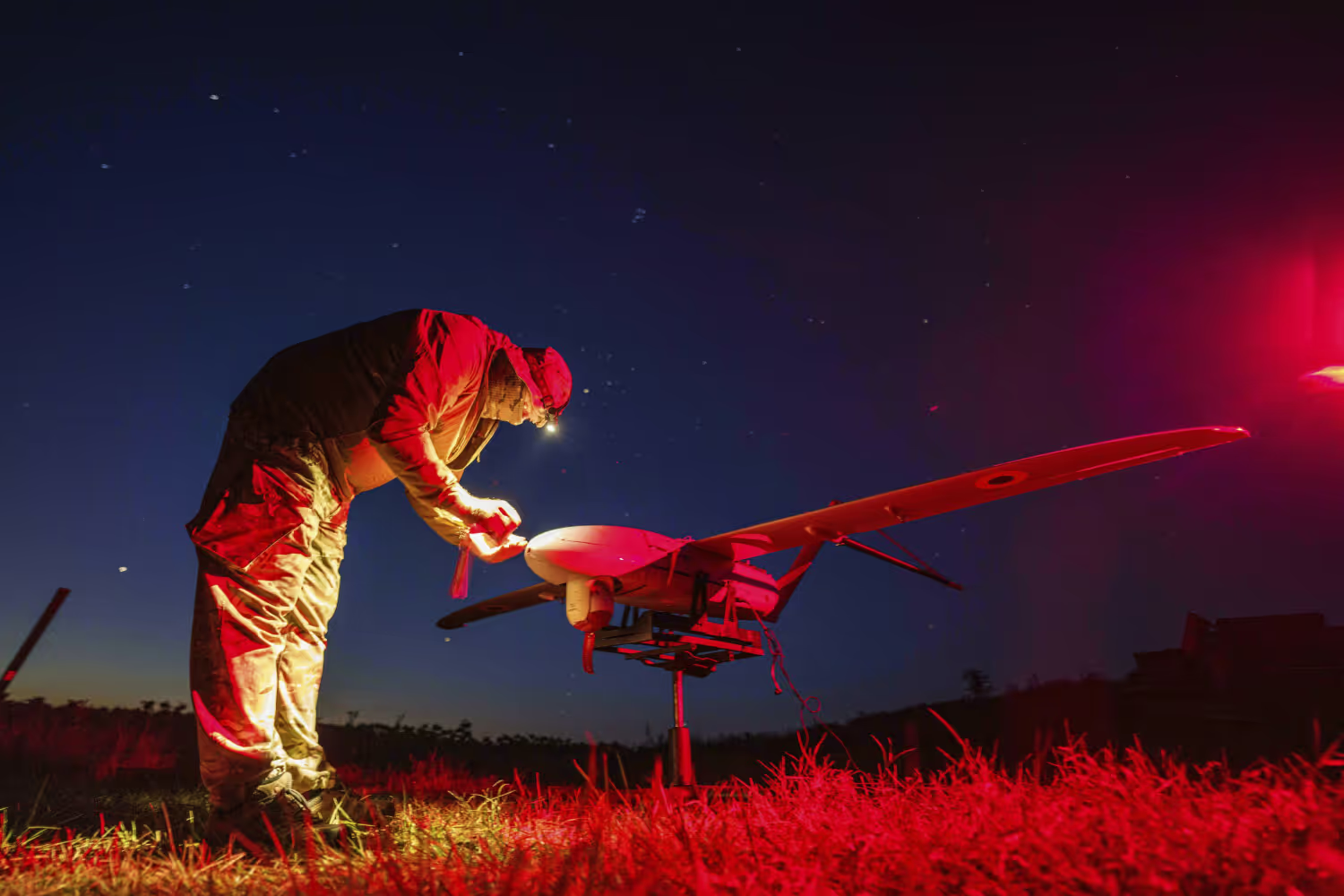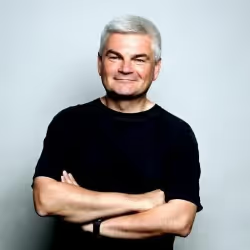Support Sestry
Even a small contribution to real journalism helps strengthen democracy. Join us, and together we will tell the world the inspiring stories of people fighting for freedom!
I lie on a couch in a small kitchen somewhere in Warsaw, enjoying the aromas - onions, beetroots, carrots and tomatoes are quietly simmering in the pan. Such is the smell of the prospect of being fed borsch.
My friend is cozily bustling by the stove while I exhale my fatigue after an early flight from Paris. It is still 5 hours until my train to Kyiv, and I stopped by with a bottle of wine and a bag of sweets (there are also two little fans of Haribo gummy bears in this house). In return, I received coffee with treats, plenty of conversation and an unexpected homely feeling of comfort you only find at your mom’s or your other closest ones’ places, where you can visit without any formalities and shamelessly sprawl on the couch while lunch is being prepared.
Why have I not taken advantage of this great offer before? - I think to myself. After all, I fly often, and the opportunity to visit someone I know for coffee in a foreign city is a big help. However, this also concerns unfamiliar people.
I remember writing a Facebook post once asking if anyone was willing to let me in to take a shower at their place in Warsaw. I then received dozens of warm invitations, mostly from Ukrainian women I did not know. Well, now I actually do have a place to drink coffee and shower in almost every Polish or European city.
This is also a mark of our new reality: there are many Ukrainian women scattered around the world as of late, and the majority (at least, those whom I know personally) yearn for the opportunity to see each other, talk face to face and envelop their kin in their kindness.
My thoughts are interrupted by a joyful girl hopping into the kitchen on one foot. She is wearing a cast on her second leg, though she does not seem bothered by this problem at all. «Mom, you promised us lody (ice cream in Polish)!» Over two years of this family's life in Poland is evident in the way this girl and her brother communicate in a tender mix of Ukrainian and Polish words.
«Yes-yes, we’re going now», - my friend agrees, and like a multi-armed Indian goddess, she manages to simultaneously tend to her borsch, prepare the temporarily rented stroller, help her daughter get dressed for the walk - all with such ease that I’m candidly amazed by her.
- It’s the antidepressants, - she laughs. - You know, things have brightened up lately. I even realised I don’t yell at the kids anymore. At all! Can you imagine?
And so, I will spend a couple more hours in this house, observing this family’s life. Of course, my observations will be shallow and incomplete, the tip of the iceberg, so to speak, and even so I will still be able to experience many things.
«You know, I rarely even allow myself to have a glass of wine over here, - my friend says, placing the wine bottle I brought on the top shelf. - Just the other day, we had this broken leg from a bicycle accident… Ugh, what a nightmare it was. And I realised once again that I can't afford to relax even for a moment. Injuries and things like that always happen unexpectedly.»
How can I afford a moment of weakness or an unclear conscience if I am the only one responsible for the children here? I am the only adult here, you understand?
I’m not sure if I do understand, as I have never been in her place. And even though there were times in my life when my husband was on the frontlines, and I would end up being the only adult taking care of our son, my closest relatives and friends would still be beside me - what’s there to say - when you are home, even the walls seem to help.

While I can only wonder about what the displaced people have been through. The possibility of such an experience has always terrified me more than any attacks on Kyiv. But I would never ask my friend if she would consider going back to Ukraine while the war is still going on. I have never been in her shoes, I do not know all the circumstances. I do not bring up such subjects while talking to my friends who have fled abroad. Still, though, they always start discussing it first.
«I feel like I’m suspended between worlds, - my friend tells me. - I don’t want to put down roots in Poland, to build my life here. I want to go home more than anything. But...» Yes, there are plenty of these bitter «buts» in her life. This woman is divorced and is raising her children mostly on her own, she does not have a place to live in Kyiv, and the money for rent is scarce, as it is hard to find a job back home with her specific profession. And she has found a job here, in Poland. Not the one she’s dreamed of but she gets paid. And the kids have been going to school for two years already, learning the language and finding friends.
My friend’s son, who’s been diagnosed with Asperger’s syndrome, was fortunate with his school - he fits in well, which is very important. Her daughter enjoys going to various clubs, which are free here. And most importantly - the war in Ukraine is not over yet.
- However I constantly feel as if I’m doing the splits between two realities
«And the feeling of this perpetuating impermanence, and simultaneously of persistent root spreading in a country where I don’t plan to live simply destroys me. - she confesses, pouring odorous borch on my plate. - Even though I want to come home badly, I cannot bring myself to start the process of returning just yet».
Changed identities
Suddenly, I’m overtaken by a déjà vu, as I recently had the same conversation, and I was being fed the same delicious borsch in Vilnius. However, my friend's situation there is even more acute: she is a single mother of many children, and their home in eastern Ukraine is in a war zone. There is no way to return right now, and will there ever be any?
It’s difficult for her to keep her head above water in another country: her family does not receive any special support from Lithuania, and she’s paying for rent herself, which basically completely consumes her modest salary and her first-year student daughter’s scholarship. Her younger children study in school, catching up to their local classmates in performance, and her youngest daughter has adapted to the kindergarten’s environment so well that you can hardly tell which language is her first - Lithuanian or Ukrainian…
This friend of mine, a mother of five, has acquired a completely new profession abroad as a trolley bus driver. This responsibility terrified her at first, she even lost 10 kilograms during her first months on the job, but she has gotten around to it.
«What I’m grateful for, among other things, is that Lithuanians give forced migrants the opportunity to study for free. Yes, I have to pay back the money invested in me during my first 6 months on the job but I find it fair. I’m considering learning to become a bus driver as well. Not every Ukrainian city has trolley buses…»
This painful topic hangs between us.
My friend keeps on stubbornly planning her future in Ukraine, but right now, all her unanswered questions seem too resemblant to open wounds
Will their house in the Donetsk region still be around if their town is under constant fire right now? And if not, which Ukrainian city is ready to take in such a large family? How are they supposed to rebuild their life there once the war ends? And most importantly, - when will it end?!
As there is also the following problem: my friend and at least one of her sons have a strong reaction to shellings, having lived through the first difficult years of the war in their town. Unlike many Ukrainians, they have not adapted and have not learned to deal with their fear.
There are too many painful questions and too few hints on their possible answers. But my friend is so wistful of her home and talks about it so much… And not just home as a place to live - home in a much broader sense.
«I’m so worried for our nation’s future, - she says to me with an apparent aching. - Our greatest men die on the battlefield, meanwhile so many women have gone abroad with their children».
I listen and look at her with wonder because when I first met this woman, the questions regarding the Ukrainian nation’s fate seemed quite foreign to her, and the Ukrainian language and culture were exotic. Now everything’s changed. War, upheaval and new existential experiences are reshaping our identities, and each of us has our own path and pace. Some people, for instance, only realise their own Ukrainian identity when they lose the ability to live in Ukraine.
There are no easy choices left for us anymore
I have the privilege of staying home in the time of war. Of course, this is a conscious for my family and simultaneously a responsibility for all the possible consequences but it also is a combination of certain favorable factors. Unlike many of my fellow Ukrainians, my house is intact and I live in Kyiv, the most protected city in Ukraine at this moment, and luckily I have not lost the ability to make a living under the circumstances of the war. And there’s also a lot going on behind the scenes.
Undoubtedly, one can talk at length about the various drawbacks of this decision, but my friends and I, who have found ourselves on the other side of the experience, tread carefully on this thin ice. And yet, I am always amazed at how all of them - those who went to Poland, Lithuania, Germany, France, USA and so on, and have not made the decision to stay there - every time we meet, they start explaining and justifying themselves to me, as if the fact that I stayed in Ukraine gives me the right to judge them.
Hey, what are you doing?! No, there are no easy choices left for us anymore. Yes, it will always be a complex mix of entirely polar feelings.
And I listen to you, my dear friends, very carefully about all your tough calls and hard times and ask myself - could I have done the same?
And I cheer for you when I hear about your children’s or your own success in an unfamiliar foreign-speaking environment. I breathe a sigh of relief when such terrible trials as suddenly discovered oncology or other insidious diagnoses are treated for free and with quality in those developed countries where you have ended up. I am not annoyed by your everyday small joys that you are too shy to openly share on social media.
Moreover, frankly, I am proud of you - all these volunteer initiatives, the incredible projects you are driving in your new locations, all this great collective work for Ukraine, its military, image, culture and so on, all of this is very, very important. The Ukrainian diaspora is our superpower, I always say that.
But I won't lie, I often feel bitterness and resentment that the damn war has scattered all of you to distant lands, that prolonged stays in other worlds inevitably affect changes in your mentality and perspective. And it hurts me, God, it hurts me so much, too, that the flower of our nation has been so cut down on various levels.
However, I want to keep believing in our power and unity, I want us to stop bickering among ourselves and learn to listen to each other in this not-so-black-and-white reality. I want to feel that circumstances and distances can not take my close ones away from me. And that someday I will feel more or less at home anywhere, where I will be fed with sincere Ukrainian borsch.

…Having thanked my host for the hospitality, I’m leaving Warsaw once again to catch one of my many trains to Kyiv. I often travel this way and already have a collection of usual observations. These trains, connecting Ukraine and Poland, are always full of our women and children who are carrying heavy luggage, learning various languages (oh, the everpresent sound of Duolingo!), who have special documents confirming the legitimacy of their stay abroad, generously share the conditions of their new lives, complain or praise themselves, who are sad or laughing, explaining themselves or defending their decisions quite aggressively, even when no one challenged them. There is so much poignancy in all of this.
On the road, I observe the cheerful little daughter of another passenger for a while. She must be two or three years old, she’s active and constantly chattering about everything under the sun. However, I find it hard to understand her. «She speaks German better than Ukrainian now», - her mother says, embarrassed and almost apologetic to everyone. Well, that happens. Especially during the endless balancing between different worlds.
Ukrainian film director and writer. Director of the documentary film «The Earth Is Blue as an Orange», which won the Best Director award at the 2020 Sundance Film Festival and the Taras Shevchenko National Prize of Ukraine in 2023. Director of the film «Me and Felix», based on the novel «Who Are You?» by Ukrainian writer Artem Chekh, who also is Iryna’s husband. Author of eight books (poetry, prose, children's literature), including «Depth of Field» and «Red on Black Traces». Her works have been translated into English, German, French, Polish, Czech, Greek, Italian, Turkish and other languages. During Russia's full-scale war in Ukraine, she began writing columns and essays for international publications, including Frankfurter Allgemeine Zeitung, Sonntags Zeitung (Germany), Weekendavisen (Denmark), Dwutygodnik (Poland) and others. Tsilyk's essays are included in the collection «Ukraine 22», published in the UK by Penguin Random House (2023). Iryna's essay «Another Life» became part of a fundraising project in collaboration with American photographer Jim Goldberg (Stanley/Barker, 2022). Another essay, «The Path of the Ouroboros», was included in a book about Swiss artist Miriam Cahn, published in Paris (2023).
.avif)
























